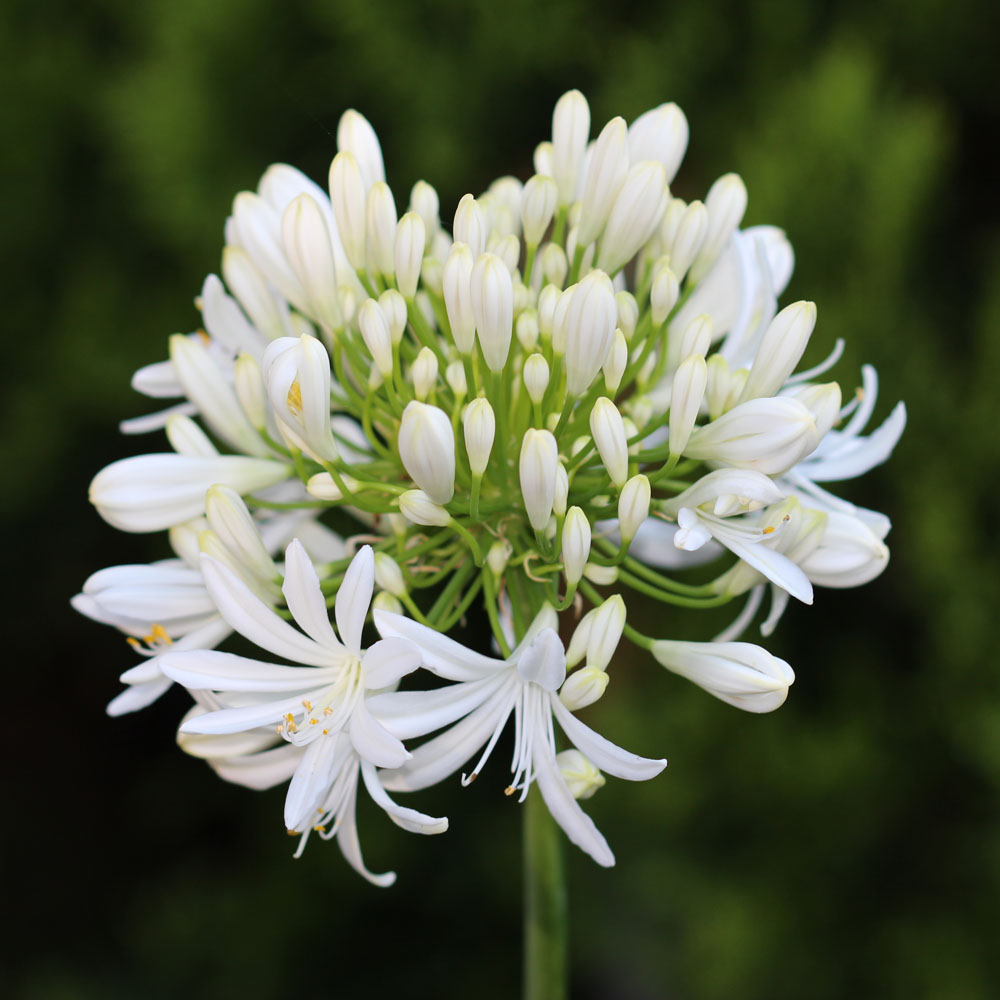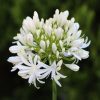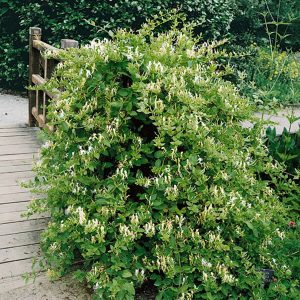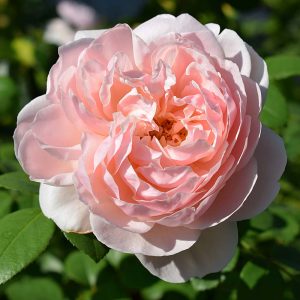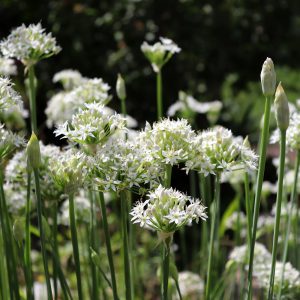Description
Looking for a plant that will bring a touch of elegance and purity to your garden? Look no further than Agapanthus ‘Ever White’. This stunning herbaceous perennial boasts clusters of pristine white flowers that bloom atop tall, sturdy stems, creating a serene and calming atmosphere in any outdoor space. ‘Ever White’ is not just a pretty face, though. It’s also a low-maintenance and easy-to-care-for plant, making it an excellent choice for gardeners of all levels. It thrives in full sun to partial shade and prefers well-drained soil, and once established, it’s drought tolerant, which means you won’t have to water it too often. For a cohesive look, pair ‘Ever White’ with other white-flowering plants like Echinacea and Gaura. Alternatively, you can create a striking contrast by pairing it with plants that have blue or purple flowers, such as Salvia and Nepeta. Overall, Agapanthus ‘Ever White’ is a versatile and breathtaking plant that will add a touch of serenity and beauty to any garden.
Key Facts
- Common Name(s):Lily of the Nile, African lily ‘Ever White’
- Hardiness:Fully hardy
- How big will I get? Agapanthus ‘Ever White’ can grow to a height of 0.5m and a spread of 0.2m.
- Did You Know That:The name “Agapanthus” comes from the Greek words “agape” meaning love and “anthos” meaning flower, hence the common name “Lily of Love”?
Plant Calendar
A rough guide to how this plant will change through the year.
| Jan | Feb | Mar | Apr | May | June | July | Aug | Sept | Oct | Nov | Dec | |
| Flowering Time | 
| 
| 
| |||||||||
| Foliage Colour |  |
 |
 |
 |
 |
 |
 |
 |
 |
 |
 |
 |
| J | F | M | A | M | J | J | A | S | O | N | D |

| 
| 
| |||||||||
 |
 |
 |
 |
 |
 |
 |
 |
 |
 |
 |
 |
Care Guide

Soil Requirements
Agapanthus ‘Ever White’ prefers soil with good drainage and does not tolerate standing water. This plant can grow in soil with a wide range of pH levels, it is not picky about the pH level of the soil.

Best Position
Agapanthus ‘Ever White’ prefers a sheltered position and requires full sun to thrive, this consists of more than six hours of direct sunshine per day.

Maintenance
Agapanthus ‘Ever White’ should be cut back to the ground in Autumn, as the foliage starts to go brown.

Pest, Diseases and Wildlife
Agapanthus ‘Ever White’ can have problems with slugs and snails, and it tends not to have problems with diseases. It is also known to attract bees and other pollinators. It is toxic to cats, dogs and people.
